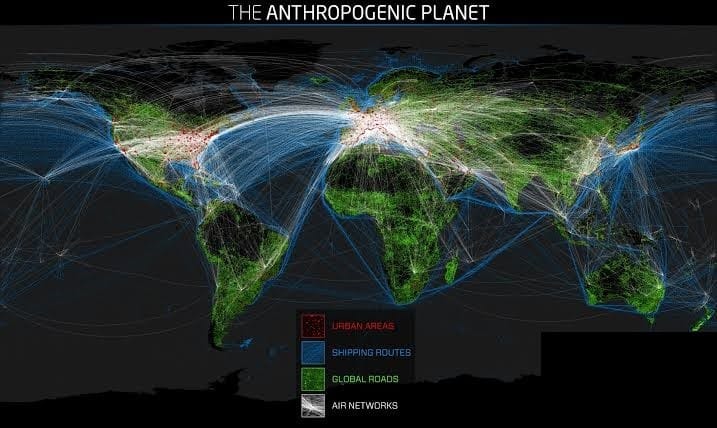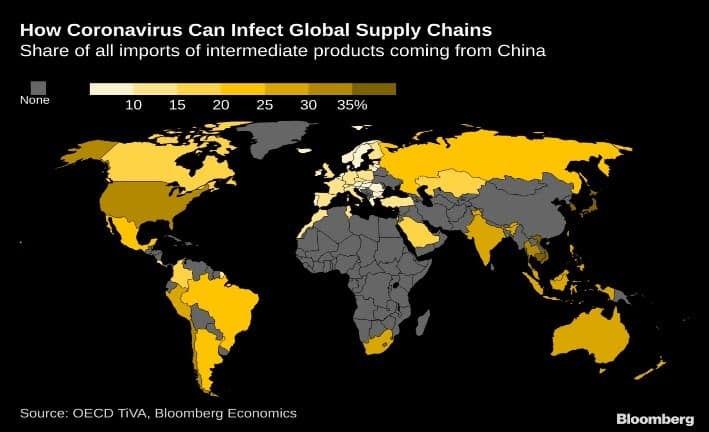16.04.2024
Global Viruses and Goals
Tribune
1 juillet 2020

> The trillion dollar question: When will this end?
> The trillion euro question: What lessons will humanity learn?
> The trillion yuan question: Which states will become the world’s new leaders?
> The trillion lira question: What will the USD/TRY exchange rate be? Should we have bought gold?
The questions are simple, the answers are complex, the consequences are in the trillions. The global annual income is currently around 90 trillion US dollars; 130 trillion when purchasing power is considered. With the impact of the Coronavirus pandemic throughout 2020, this figure will be significantly reduced not only in its monetary, but also human and institutional dimensions. The situation is perilous.
When the 2008 financial crisis hit the world after a relatively long period of economic growth, the global economy was not being supported by a well-coordinated system. Re-activated with the hope of resolving this crisis, the G20 paved the way for a new international order in many areas, from financial markets to climate change. However, such attempts at global governance were unable to achieve the level of power that was needed for international policy-making. Globalisation, on the other hand, was expanding in all directions. Everything was moving with more freedom around the planet: money, goods, services, people, information, data, ideas, culture… Societies were embracing the irresistible opportunities of globalisation. Meanwhile, increased mobility benefited to global viruses too: biological, financial, digital, ideological viruses. The carbon dioxide virus; the terrorism virus; the organised crime virus; the corruption virus; the unemployment virus; the disinformation virus…
Human civilisation entered the Covid-19 pandemic within the midst of this complex dynamic. Those same issues will now determine the new reality of the near future. Global trends in pre-crisis times will shed light on the world which awaits us after the crisis. Urgent problems which have emerged from this crisis will continue to be at the forefront of our agenda: whereas the pandemic itself is projected to remove four years of growth from the global economy and push an additional 130 million people to poverty, according to a UN study. This will trigger another cross-border contagiousness: the poverty virus, income disparity pandemic, social and economic quarantines…
Public health first, or the economy first? It seems that unhealthy societies bring the economy down, but if the economy collapses, how will the health system work? Which political consensus, which model of transparency and accountability will find the right balance? Which systems of governance at the institutional, local, national, and international level will be successful?
In short: where will the world go?
In which direction will the needle move between the dilemma of security and freedom? Will governments that have systematised facial recognition, phone tracking, social behaviour measurement, and drone technologies become widespread? Or, on the contrary, perhaps through the waves of increased social responsibility and individual initiative that arise in pandemic times, will a more democratic, transparent, social, scientific, and global understanding of politics prevail? Will we pass through an initial phase where every country is introverted, protecting its own health order, its citizens, its companies that manage to survive the Darwinian process, and its physical geography?
Will we then dialectically move on to an era where the inevitable need for international cooperation becomes obvious? Will this be a world where the global governance of public health, the Eurozone’s management system, the United States’ multilateral approach towards global finance and trade policies, the impact of transatlantic and trans-pacific economic areas, the effect of 3D printers on trade, drone traffic airspace regulations, the impact of satellites orbiting the Earth in supporting economic and social development, artificial intelligence regulations, 5G infrastructure, and quantum computing competition becomes stronger?

What about the global supply chains? Not only for trade, but also for the logistics, finance, technology, agriculture, tourism, medical services, data management… Less dependency on few sources like China and more localisation and diversification on the horizon? Will the proximity become a fundamental criterion in the reorganisation of the global supply chains? Proximity being defined not only in geographic terms but in regulatory, institutional and political terms as well? Will the social, ecological and democratic standards matter more?
At the same time, will this be a world in which OECD countries with common goals such as democracy, rule of law, fundamental freedoms, market economy, independent regulatory institutions, and social progress adopt such “broad West” values with a more progressive approach in the post-Corona era? Will this be a period in which China, despite its authoritarian characteristics, after taking into account its internal social and economic fragilities, becomes a more constructive player in this new paradigm of international cooperation?
Shall the European states finally commit to sufficient coherence and solidarity as a prerequisite to redefine a global role for the European Union? Will they agree to confer on the EU more effective competences in the field of economic policies? Will the Eurozone’s governance become more supranational? Thus, a stronger EU guiding the references for the international trade and investments; fueling the Western values, social concerns and the ecological targets translated recently to a Green Deal?
After the fourth Industrial Revolution, will there now be a more focused search for “Society 5.0” which establishes the right equation for social, ecological, scientific, technological, and democratic development? Will the United Nations’s Sustainable Development Goals (SDGs), grouped into 17 global objectives, become the main framework for the achievement of all these developments in the West and maybe in the world? Will the progress that we make in these areas today, even if only in part, shape the history of the near future?
Yes.
Yes, the SDGs constitute the pillar of the solution to many questions triggered or amplified by the Covid-19 crises. Whether explicitly or implicitly the SDGs will gain weight as both social and financial values. Whether consciously and systematically, or instinctively and spontaneously, more and more decisions will be filtered through the prism of ecological and social values, and the search for a better society in the post-Covid-19 digital age. For the customers, suppliers, executive boards, purchasing managers, product and service designers, financial institutions, public authorities; for the companies and their clients, for the politicians and their public, the global goals for sustainable development will become natural references.
These global goals, while addressing well the Western values, have the merit of being accepted by all sorts of political regimes as the world’s to-do list. They require concrete actions and generate positive side effects for more transparent and accountable political governance. Just like the democracy, they are maybe far from being perfect, yet sufficiently forward-looking. The Covid-19 pandemic has propelled the Sustainable Development Goals as the driving force of the human progress. We should enthusiastically promote them.

———————————————
Dr. Bahadir Kaleagasi is the President of the Bosphorus Institute (Paris-Istanbul) and a board member in several business and academic institutions. He was formerly an academic at the University of Brussels (ULB), researcher for the EU Commission’s Forward Studies Unit’s projects, EU representative, international coordinator and Secretary General of TUSIAD (Turkish Industry & Business Association), executive committee member of BusinessEurope (Confederation of European Business) and a delegate to B20/G20.